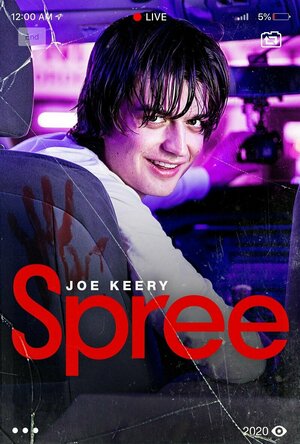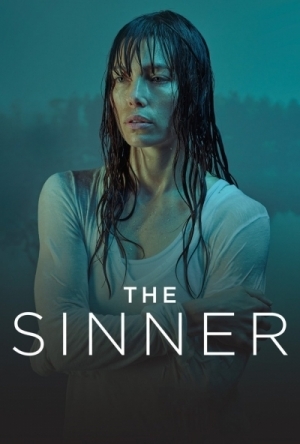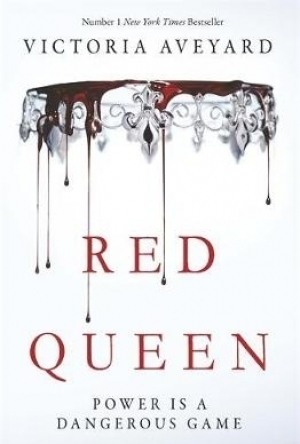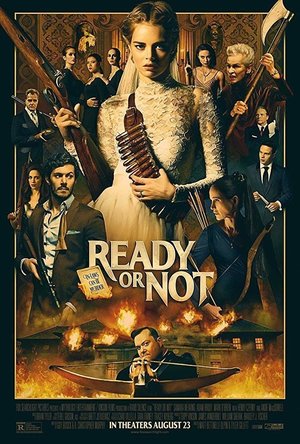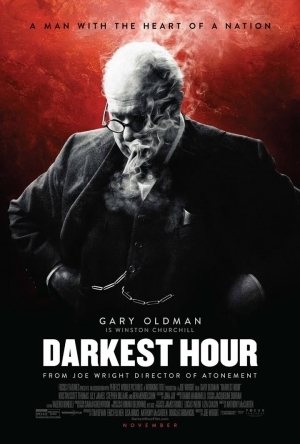
Snapdeal: Online Shopping App
Shopping and Lifestyle
App
Upgrade your life with Snapdeal, India’s #1 shopping app and your one-stop shop for fast, easy and...
Sarah (7800 KP) rated Spree (2020) in Movies
Jan 24, 2021
Spree is a 2020 comedy horror film starring Joe Keery as Kurt Kunkle, a failing social media influencer who works as a driver for a rideshare app called Spree. Fed up of his lack of viewers, Kurt decides to fit out his car with cameras and livestream “The Lesson”, where he instructs viewers on how to become famous on social media while picking up passengers and murdering them. One of the passengers he lets go is comedian Jessie Adams (Sasheer Zamata), a star and social media success who Kurt becomes obsessed with over the course of his murderous evening.
Spree is definitely a fun film. The comedic horror style works very well, especially in the first half although later on it does make way for a more serious side. There’s a decent amount of blood and gore too and it has a wonderfully cheesy B-movie vibe about it. What makes Spree so fun though is Joe Keery. His performance as an influencer is entirely believable and it’s his charisma and baby-faced innocence that makes this film watchable. He spends the entirety of the film like he’s high and hyped up on energy drinks and while this does make his performance a little over the top, this is exactly what Spree needs. David Arquette as Kurt’s dad also brings a lot of fun although his screen time is sadly lacking.
Despite Spree’s dark comedic feel, there’s a more serious story and commentary underlying this film. It might look as though it’s making light of social media influencers, but actually it’s making a rather serious point of the pressures and negatives of the constant need influencers have to be liked and obtain more followers. Kurt’s story is rather sad, and even the other characters like Jessie are shown to have their own stories but still stuck in the same social media behaviour. The live streams used to shoot most of this film, with the likes and comments from viewers, emphasise the pitfalls and real life issues with social media.
Admittedly this live stream method does get a little thin by the end of the 90 minute run time, and after the initial few murders, it’s only Keery’s performance that holds the film up to the end. It isn’t helped that aside from Kurt, none of his victims are particularly likeable and it makes them very difficult to relate to or care about. And this also goes for Jessie who despite her heroine status, becomes unlikeable due to how she too bows to the pressure of social media.
I’m not a fan of the YouTube and influencer revolution, so for me Spree was an interesting take on this and social media in general. It has a good point to make and a serious message, although this may be overshadowed by the dark comedy and horror. With a great turn from Joe Keery, it’s a fun film but not entirely memorable.

HD Wallpapers & Backgrounds – Cool Retina Themes
Lifestyle and Entertainment
App
●●● Featured in iTunes in 100+ Countries ●●● ●●● The #1 Ranked iPhone Wallpaper...

GPS Camera with photo organizer
Photo & Video and Navigation
App
This application is a camera that can attach GPS location to the photo. It also records date and...
Daniel Boyd (1066 KP) rated The Sinner - Season 1 in TV
Nov 30, 2017 (Updated Nov 30, 2017)
I like Jessica Biel, I like Bill Pullman and I like Christopher Abbott, who plays the husband to Biel's Cora Tannetti. I like mysterious shows about crime and murder. I should have loved this, but I thought it was a train wreck from start to finish. During the first episode we see the murder occur in graphic detail, then the next couple of episodes ask why she did what she did and then you start to wonder, "how are they going to manage to drag this out for another six episodes without it getting stale?" The answer is, they aren't and it gets old fast. In this sense, the writing is a mess.
Sometimes though, a show can have messy writing, but be saved by it's cast of characters. However, that is absolutely not the case here. Cora is the main character of the show, so I think we are supposed to feel some sort of connection to her, yet she is so grossly off-putting in every way, I was actually was hoping to see her get the death sentence. At first you see her committing this atrocity, which obviously causes you to take an instant dislike to her, but you expect as the show goes on and we learn more about her, that we will eventually feel sympathetic towards her. In fact, the exact opposite is true, every new facet of information that I learned about her backstory just made me hate her more and at no point did I feel like I was on her side.
There is also a flashback subplot going on, which shows Cora as a suspiciously old looking teenager, as for some reason Jessica Biel is still playing the role of the teenage Cora. Through this we see her family life growing up, but her family are some of the most dislikeable characters I have seen in a TV show in years. Her mother is a religious nut to the point of insanity, her father is sleeping with the next door neighbour and her terminally ill sister is such a little shit that you don't feel any sympathy towards her for her illness and you end up hoping she will die sooner rather than later.
I'll try to discuss the ending without giving away any major spoilers, but for those who haven't yet seen the show, you may want to skip to the final paragraph. At around the episode 5 mark, I was very close to giving up on this show, but I had heard that the ending was amazing, so I stuck with it. What a waste of time that turned out to be. The reveal itself was a huge let down and after everything was revealed, I still felt that the murder victim didn't deserve to die and I thought that Cora pretty much getting away with murder was so dissatisfying and undeserved.
Overall, this show is pretty awful. There are so many plot threads that go nowhere, the writing thinks it is far more clever than it actually is, actors that I normally like are playing entirely dislikeable characters and the whole thing seems far longer than just nine episodes. The ending isn't worth sticking around for and really the show is just tons of wasted potential. Do yourself a favour and give this a skip, there are far better shows available to watch on Netflix.
Mare is thrust into a world she never wished for and doesn't fit into. She is given no choice but to accept. There is much to learn about her abilities and how to control them. The one demand she made was to ensure the safety and well-being of her family. Her brothers are called home from the war, but not soon enough to save all of them. <spoiler> One was a member of a rebel/revolutionary group and was executed for it. </spoiler> This pushes Mare over the edge and she joins the rebel group, the Scarlet Guard.
It's intriguing to learn what each person has the ability to do. The control over water, manipulation of light, healing, mind-reading and more. But it's very off-putting and juvenile when the author refers to them as greenies or telkies. It sounds more like a two-year-old naming their stuffed bear Brownie or Fluffy than an author giving life to special abilities.
The world is not our own, so it would be nice to learn more about it. Unfortunately, Mare is not very learned and we must view the world through her lens. It would be fascinating to be given a history, geography and culture lesson from Julian in novella form. What does their domain look like? What about the surrounding kingdoms, their rulers, ruling abilities and geography? How did these new borders come to be? (It is mentioned that the borders were not always the way they are currently.) Overall, the world building is pretty good but could be improved (which it does later in the book.) The physical descriptions of the towns the royals pass on their way to the palace late in the story are good and allow the reader to immese themselves in the world more fully.
The princes are, unsurprisingly good people despite the harshness of the King and Queen. <spoiler> Or at least appear to be that way in the beginning, but it does not last. </spoiler> The future love interest(s) must be liked by the reader. Mare herself is harsh and quick-tempered by likable nonetheless. Though she has no choice in her future, she assures her family's well-being and that shows she has a good heart.
Of course, our protagonist catches the attention of not just one but two princes. The older and future King, Cal, wants to be a good ruler so he secretly ventures out in public to learn and experience his people outside the reports of advisors. He even decides to send a group of Silver soldiers to the front line and chooses to lead them. It may win the war, but it could also kill him. The younger, forever shadowed brother Maven believes that Reds and Silvers are equals. He even joins the Scarlet Guard to help propel change and spark a revolution.
Anyone can betray anyone.
The Scarlet Guard secrets Maven and Mare out of a play and transports them to another town just to have a conversation. Clearly the travel and discussion would take a significant amount of time and yet no one wonders where they are. The return trip and the play ending are just completely skipped. It was abrupt and didn't seem well-thought out.
The book ends with betrayal and bloodshed. But it also ends with a promise and the hope that not all is lost. It makes me want to begin the next book immeiate. Highly recommended book to fans of YA novels with good world building and character development that deal with monarchical rule and upheavals as well as people with special abilities.
Bong Mines Entertainment (15 KP) rated Ella Mai by Ella Mai in Music
Jun 7, 2019 (Updated Jun 7, 2019)
Ella Mai – “Good Bad”
‘Good Bad’ tells the story of a moody woman who’s not perfect. One day, she has a pleasant personality, and another, an attitude. If she was single, her behavior might go unnoticed, but the thing is she isn’t single.
She’s in an up-and-down relationship with a guy she desires. And oftentimes, he thinks she’s mad at him whenever she gets in one of her bad moods. Also, she knows her good side is the reason why he doesn’t get up and leave. But in a weird way, he likes her bad side.
‘Good Bad’ contains a relatable storyline, soul vocals, and a groovy neo-soul instrumentation produced by Nana Rogues.
Ella Mai – “Dangerous”
‘Dangerous’ tells the tale of a woman who’s in a loving relationship with a guy she’s deeply in love with. She cooks breakfast for him because he shows he deserves her love. But the danger comes in play when she risks it all by putting her all in their relationship, which has no guarantee.
‘Dangerous’ contains a romantic narrative, r&b/soul vocals, and a spunky Bryan-Michael Cox-produced instrumentation oozing with a poppin’ neo-dance flavor.
Ella Mai – “Sauce”
‘Sauce’ tells the tale of an attractive female with a confident, stylish nature. She’s in a new relationship with a guy who’s already head-over-heels in love with her. But the thing is they haven’t been together that long. Either he’s trippin’ or addicted to her sauce.
‘Sauce’ contains a relevant storyline, r&b/soul vocals, and bouncy instrumentation produced by Quintin Gulledge and DJ Mustard.
Ella Mai – “Whatchamacallit” feat. Chris Brown
‘Whatchamacallit’ tells a tale of a guy and a girl who’s in a secret relationship with each other. The woman has a boyfriend and the man has a girlfriend but that doesn’t stop them from committing a romantic crime. They know their sensual action is wrong, but it feels so right that they override their conscience.
‘Whatchamacallit’ contains an exciting storyline, wonderful soul vocals, and charismatic instrumentation produced by J Holt and DJ Mustard.
“Cheap Shot”
‘Cheap Shot’ tells the tale of a woman who has a dude who loves her, but she didn’t know beforehand how he felt until now. The term ‘cheap shop’ indicates that he takes advantage of her when she’s at her weakest point in life. A time when she just needs to chill instead of going through the emotions of love all over again.
‘Cheap Shots’ contains a relatable storyline, r&b soul vocals, and lush instrumentation produced by Harmony Samuels.
Ella Mai – “Shot Clock”
‘Shot Clock’ tells the tale of a woman who’s been dating a guy for five years. She thinks he’s playing games about commitment, therefore, she gives him 24-seconds to make a decision. But if the shot clock winds down to zero, he might find his babe in the arms of another man.
‘Shot Clock’ contains a relatable storyline, r&b/soul vocals, and charismatic instrumentation produced by DJ Mustard.
Ella Mai – “Boo’d Up”
The video finds Ella and her man riding Go Karts inside an amusement area with several friends. The newly-formed couple is happy and boo’d up in public.
‘Boo’d Up’ is a contemporary love song that finds Ella reminiscing about a past lover. Although their relationship is over, she finds it hard getting over that special person who makes her heartbeat bounce abnormally.
‘Boo’d Up’ contains a relatable narrative, gorgeous soul vocals, and ear-welcoming instrumentation oozing with classic neo-soul elements. The track was produced by Larrance Dopson and DJ Mustard.
Ella Mai – “Everything” feat. John Legend
‘Everything’ tells a sweet tale of a woman who appreciates the guy she’s with. Both of them are giving their all to keep their relationship healthy. According to the woman, they have everything they want.
‘Everything’ contains a relatable storyline, soul-pop vocals, and lovely instrumentation produced by DJ Mustard, Dayyon Alexander, and Jeff Alexander.
“Own It”
‘Own It’ tells an erotic tale of a woman who’s ready to get down and dirty with her significant other. She has on a T-shirt and panties and he’s on his knees servicing her body. Fluids are dripping and they are talkin’ naughty to each other while making love all night long.
‘Own It’ contains a sexy narrative, soul vocals, and slow-grinding instrumentation produced by Kosine and Miykal Snoddy.
“Run My Mouth”
‘Run My Mouth’ tells a tale of a woman who’s in love with a guy she’s in a relationship with. She’s addicted to making love to him, and every time they make love she runs her mouth in a good way because the sex is good.
‘Run My Mouth’ contains a sexy storyline, charismatic vocals, and melodic-trap instrumentation produced by DJ Mustard.
“Gut Feeling” feat. H.E.R.
‘Gut Feeling’ tells the tale of a young woman; her intuition tells her that the guy she’s in love with is guilty of something. She searches his phone looking for clues of his infidelity but finds nothing. Later that day, she asks him to come clean if he’s doing something wrong such as cheating, etc.
‘Gut Feeling’ contains a relatable storyline, charming soul vocals, and lovely instrumentation produced by DJ Mustard.
Ella Mai – “Trip”
‘Trip’ tells the tale of a woman who’s addicted to making good love with her significant other. But when she doesn’t get it, she overreacts or gets bent out of shape.
‘Trip’ contains a relatable storyline, soothing soul vocals, and piano-laden instrumentation produced by Keys and DJ Mustard.
Ella Mai – “Close”
‘Close’ tells the tale of a woman who appreciates the man she’s in love with. All day every day she thinks about him. Apparently, she’s not an easy person to be with, but somehow, his easygoingness balances her nature when they are close in each other’s arms.
‘Close’ contains a sensual storyline, charming melodies, and charismatic instrumentation produced by DJ Mustard.
Ella Mai – “Easy”
‘Easy’ tells the tale of a woman who’s in a new relationship with a guy she desires. Apparently, he’s a little uneasy about commitment. She reassures him that he should let his guard down and not worry. Therefore, she makes it easy for him to fall in love with her.
‘Easy’ contains an evergreen narrative, soul vocals, and ear-welcoming instrumentation produced by Lido and DJ Mustard.
Ella Mai – “Naked” (Bonus Track)
‘Naked’ tells the tale of a woman who’s looking for a guy who will love her unconditionally. Someone who will look past her flaws. Someone who will say she’s beautiful even when she doesn’t look the part.
‘Naked’ contains a relatable storyline, wonderful soul vocals, and sexy instrumentation produced by DJ Mustard.
“Ella Mai”
Ella Mai
In conclusion, Ella Mai’s self-titled debut studio album is a wonderful work of art. We totally enjoyed listening to each song from beginning to end.
Also, her voice sets a gorgeous tone while projecting an appealing and relatable narrative mostly focused on the up-side of romantic relationships, which contributes to the album’s feel-good vibe.
Mai’s first full-length offering is deliciously impressive and solidifies the London songstress at the helm of the contemporary R&B market.
https://www.bongminesentertainment.com/ella-mai-debut-album/
Emma @ The Movies (1786 KP) rated Ready or Not (2019) in Movies
Nov 5, 2019
What stopped me in my tracks a little was what the film was trying to be. I thought it was going to be a homedy (yes I'm still trying to make my horror-comedy hybrid work), your traditional crazy horror with a comedic leaning... but what happened was a lot of drama, they were actually trying to be serious. Well, as serious as you can get when you're in the middle of hunting a bride on her wedding night. When mother and son sit to have a heart to heart I was actually taken out of the film for a moment as it wasn't in keeping with what else was happening.
Had this gone all the way over to crazy horror I would have given it a higher rating, they're fast paced and entertaining, the slight indecisiveness of what came to the screen really knocked it down for me. Even with the bizarre magic box tradition this film could have been something more serious but not by the time we get to that ending.
I'm really thankful that this game adaptation was at least better than Truth Or Dare. I don't think I could stand another stinker like that. The story is a nice easy one to get along with, family acquire a magic box that keeps them thriving and all they have to do is occasionally sacrifice someone that's loved deeply by one of the family... good old Satan bringing us a solid storyline.
Samara Weaving, or as I have to keep reminding myself "not Margot Robbie", plays our blushing bride, Grace. Boy does she throw a lot at this role, I like to think she got a lot of stress relief out of this as she fights back at her would be murderers. Thankfully Grace didn't end up in many of the drama-y bits so there was little to be annoyed about. Her magic moments included punching Georgie, swearing at the car and wailing like a banshee at the end like she'd gone feral. Bravo! But I think the best and worst bit was when she climbed out of hell, you knew what she was thinking, you knew she had no option and oh my god did I hurt in sympathy.
Adam Brody has to be the other stand out performance for me as the brother-in-law, Daniel Le Domas. We get a very small introduction to his character as a child but it really did help you to understand the way he is and why he reacts the way he does as they hunt Grace. The guilt he has from the first Hide & Seek he participated in is clearly part of the reason he's the son who's off the rails, but he keeps his protective nature from his childhood in adulthood towards his brother and Grace. He stops and talks with Grace during the hunt and you can see him switching allegiances as we get further through the story. Brody conveys this well and is actually the one character that you can sort of sympathise with. His death is the beginning of the end and it's an emotional moment that played out well on screen. I think he probably came out better not surviving to the end of the film.
There are lots of highs and lows with various characters throughout. Fitch is the "dumb" one and there was something magical about seeing him YouTubing how to use a crossbow and later asking Charity at what point they should cut and run.
Mark O'Brien as Alex Le Domas was probably my least favourite character. His scripting felt rather bland compared to some of the others... but mainly... what an arsehole! Just live in sin man! Why potentially doom her, I'm sure it wouldn't have been too hard to fall off the radar somehow. If he was already slightly estranged I can't see that going altogether would be much of a stretch.
Alex also gets what is possibly the most annoying part of the script, he's handcuffed to the bed and he starts using the chain as a saw to try to get through the ornamental bar... these aren't bit of Ikea furniture... in what universe is that going to work in this timeframe?! Stand up and throw your weight on it until it snaps! I was wondering if he was actually trying to break the handcuffs (an equally stupid idea), and do we actually see how he gets out of them? Now I've confused myself.
Anyway, this will become an epic if I don't move on.
I quite liked the way the film looked, once we got to the evening the whole set became a beautiful golden autumnal palette and it gave you a sense of wealth and history, but when you add in the blood and seeking you get a real sense of the hiding (that makes sense in my head). It did at times become dark, it was never so bad that you couldn't see what was happening but it allowed for the reintroduction of light at the end as the house burns behind her which was a nice touch.
The final sequence should probably get its own mention. Alex, obviously about to break after seeing his brother die and Grace bludgeoning his mother, is bizarrely confirming his fears that the pair will not be together after what has happened. He then turns on her so he can get back the only thing left in his life, his (now slightly smaller) family. I loved the slightly vampiric turn the scene took as they're exposed to the morning sun, I'm not sure I'd have recoiled from it quite so much but I appreciated the comedic value it added. The family's actual demise and Grace's ghost sighting are the reason this needed to be a homedy (Still no? Whatever.), there's no way that fits in with anything more serious. And I'm sorry but overall I didn't find it that funny, much like Last Blood I was reacting to the ridiculous violence.
I like to think that as the last bit of the house disintegrates in the fire and Grace is still sitting bleeding on the steps that a firefighter comes over with the seemingly untouched magic box and hands it to her because it looks like a family heirloom. She's a Le Domas now, and everything is hers...
Full review originally posted on: https://emmaatthemovies.blogspot.com/2019/11/ready-or-not-spoilers-movie-review.html
Bob Mann (459 KP) rated Darkest Hour (2017) in Movies
Sep 29, 2021
It’s 1940 and Western Europe is under siege. Neville Chamberlain (Ronald Pickup, “The Second Best Exotic Marigold Hotel“) is the Conservative Prime Minister but is voted out of office in an attempt to form a grand coalition government with Labour leader Clement Atlee (David Schofield). Despite appearing a shoe-in for the role, Viscount Halifax (Stephen Dillane) turns it down, thinking that his alternative (and bête noire) would drink from the poisoned chalice and be quickly be out of his (and Chamberlain’s) hair. For that alternative choice is the volatile and unpredictable Churchill (Gary Oldman), grudgingly invited into the job by King George VI (Ben Mendelsohn, “Rogue One“). With the Nazi’s bearing down on the 300,000 encircled troops at Dunkirk, and with calls from his war cabinet to capitulate and seek terms of settlement, this is indeed both Churchill’s, and the country’s, ‘darkest hour’.
Despite the woeful lack of historical knowledge among today’s youngsters, most will be at least aware of the story of Dunkirk, with many having absorbed Christopher Nolan’s film of last summer. This film is almost the matching bookend to that film, showing the terrifying behind-closed-door events that led up to that miracle. For it was terrifying seeing how close Britain came to the brink, and I’m not sure even I really appreciated that before. While this might have been a “thriller” if it had been a fictional story, we well know the outcome of the story: but even with this knowledge I still found the film to be extremely tense and claustrophobic as the net draws in around Churchill’s firmly-held beliefs.
Gary Oldman’s performance is extraordinary, and his award nominations are well-deserved. We have grown so used to some of his more over-the-top Russian portrayals in films like “Air Force One” and last year’s (pretty poor) “The Hitman’s Bodyguard” that it is easy to forget what a nuanced and flexible actor he is. Ever since that “No, surely not!” moment of that first glimpse of the film’s trailer, it has almost been impossible to ‘see’ Oldman behind the brilliant make-up of the character (Kazuhiro Tsuji gets a special credit for it). But his eyes are in there, and there are some extreme close-ups (for example, during a bizarre and tense phone call with Roosevelt (David Strathairn)) when you suddenly see “There you are!”.
The supportive wife – Clemmie (Kristin Scott Thomas) gives Winston (Gary Oldman) a hug.
While I have nothing against Brian Cox as an actor, I far prefer the portrayal of Churchill on show here compared to last year’s “Churchill“: true that that film was set three or four stressful years later, but Cox’s Churchill was portrayed as an incompetent fool, an embarrassment to the establishment that have to work around him. Oldman’s Churchill is irascible, unreasonable, but undeniably a leader and a great orator.
Mirroring “Churchill” though, the action is seen through the eyes of Churchill’s put-upon secretary, here played delightfully by Lily James (“Downton Abbey”, “Baby Driver“) who perfectly looks and sounds the part. The character is more successful than that of Ella Purnell’s Garrett in that she is given more room to develop her character and for the audience to warm to her. Oldman is getting all the kudos, but Lily James really deserves some for her touching and engaging performance here.
Perfectly cast: Lily James as Churchill’s secretary Elizabeth Layton.
Also in Oldman’s shadow is the always marvelous Kristin Scott Thomas (“Four Weddings and a Funeral”, “The English Patient”) as Clemmie Churchill, expressing all the love and frustration associated with being a long-suffering wife to an over-worked husband in the public service.
At the pen is “The Theory of Everything” writer Anthony McCarten, and I’d like to say its a great script but with most of the best lines (“a sheep in sheep’s clothing” – LoL) coming from Winston himself it’s difficult to tell. Some of the scenes can get a bit laborious and at 125 minutes – though not long by any means – the script could still perhaps have had a nip and tuck here and there.
Where some of this time is well spent though is in some sedate shots of London street life, across two separate scenes panning across everyday folk as the stresses of war start to become more evident. This is just one of the areas where director Joe Wright (“Atonement”, “Pride and Prejudice”) shows considerable panache, ably assisted by the cinematography of Bruno Delbonnel (“Inside Llewyn Davis“): a boy closes his telescope-fingers around Churchill’s plane; a bomb’s eye-view of the beleaguered Brigadier Nicholson in Calais; and – very impressively – the smoky imperiousness of the House of Commons set.
An atmospheric chamber: the recreation of the wartime House of Commons is spectacular (with production design by Sarah Greenwood (“Anna Karenina”, “Atonement”)).
And most-importantly Wright delivers what Christopher Nolan couldn’t deliver in “Dunkirk“: a properly CGI’d vista of hundred of small boats crossing the channel to Dunkirk. Now THAT is a scene that Kenneth Branagh could justly have looked in awe at!!!
There are a number of scenes that require disbelief to be suspended though: the biggest one being a tube train ride – very moving and effective I must say – but one that features the longest journey between any two stations on the District Line than has ever been experienced!
One stop on the District Line via Westminster…. via Harrow-on-the-Hill!
So this is a great film for really reliving a knife-edge moment in British history, and is highly recommended particularly for older viewers. If I’m honest though, between “Darkest Hour”, “Churchill” and John Lithgow’s excellent portrayal in “The Crown” I’m all over portrayals of the great man for a few years. Can we please move on now Hollywood?

Death By Rock and Roll by The Pretty Reckless
Album
Rock 'n' roll is a religion. It's a commitment to an ideal, a belief system. The lifestyle and...
